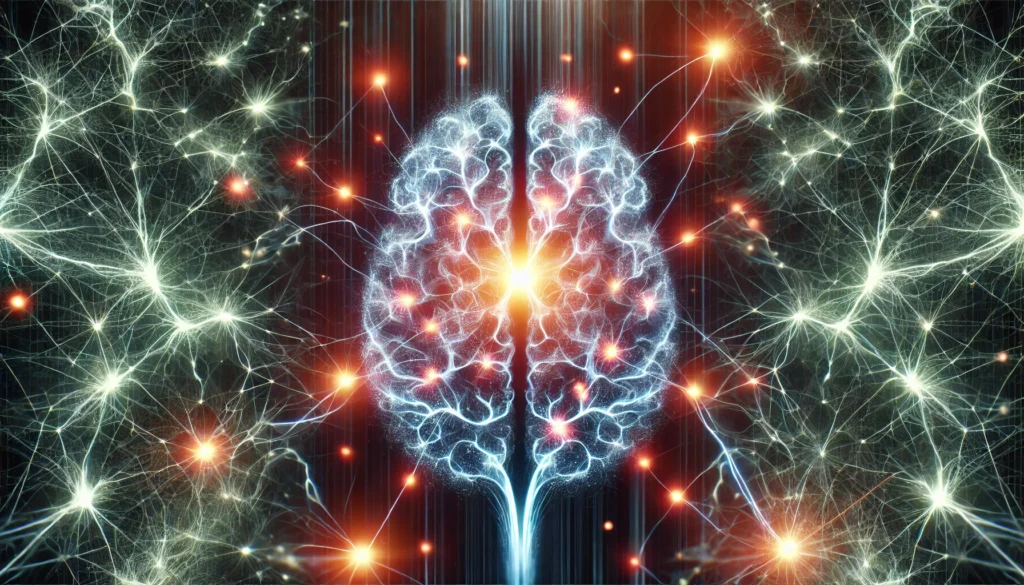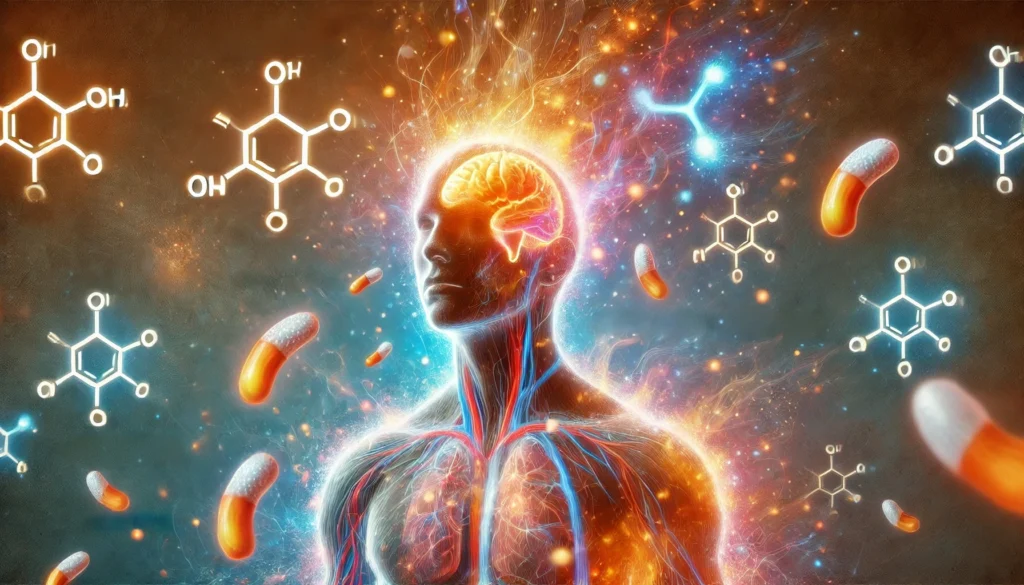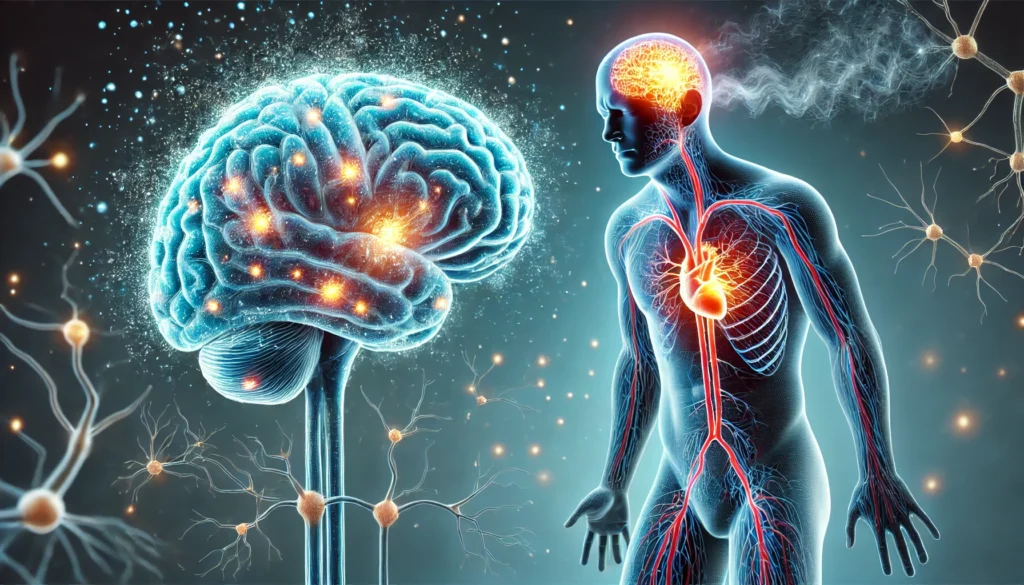Sleep is not merely a period of rest; it is an essential physiological process that plays a critical role in maintaining homeostasis. It serves as a time for the body to repair and rejuvenate, affecting everything from memory consolidation to immune function. When we deprive ourselves of sleep, the body’s intricate balance is disrupted, leading to a cascade of physiological changes. At the core, sleep deprivation impacts the central nervous system, which, in turn, can lead to symptoms such as shivering or trembling.
The Role of the Central Nervous System
The central nervous system (CNS) is a complex network that coordinates the body’s responses to internal and external stimuli. It is responsible for processing sensory information and orchestrating motor functions. When sleep is compromised, the nervous system’s ability to regulate temperature and maintain muscle control is impaired. This disruption can result in involuntary muscle contractions, often perceived as shivers or tremors. The CNS relies on sleep to reset and recalibrate, and without it, the fine-tuned balance of neurotransmitters can become erratic, leading to heightened sensitivity to stimuli and involuntary responses.
Hormonal Fluctuations
Sleep deprivation also affects the endocrine system, leading to hormonal imbalances. Hormones such as cortisol, often referred to as the “stress hormone,” are typically elevated in individuals who are sleep-deprived. Cortisol helps the body respond to stress, but chronically high levels can lead to various health issues, including anxiety and shivering. Additionally, the lack of sleep affects hormones that regulate mood and energy levels, such as serotonin and adrenaline. These fluctuations can exacerbate the body’s stress response, potentially triggering shivering as a physical manifestation of anxiety or stress. The interplay between sleep and hormones is complex, and ongoing research continues to uncover the full extent of these relationships.
Impact on Thermoregulation
Thermoregulation is the body’s ability to maintain its core internal temperature. Sleep deprivation disrupts this process, leading to challenges in maintaining a stable body temperature. The hypothalamus, which plays a key role in thermoregulation, is affected by lack of sleep, leading to increased sensitivity to cold and resulting in shivering. This response is the body’s attempt to generate heat through muscle activity. Understanding the impact of sleep on thermoregulation highlights the importance of rest in maintaining not only cognitive but also physical equilibrium.
You May Also Like: Understanding the Impact of Chronic Sleep Deficiencies

Historical Context: Sleep and Its Implications
Throughout history, sleep has been both revered and misunderstood. Ancient civilizations often ascribed mystical qualities to sleep, recognizing its importance for health and well-being. In mythology and folklore, sleep was sometimes seen as a gateway to the divine or a source of inspiration. However, it wasn’t until the advent of modern science that the physiological and psychological implications of sleep deprivation began to be understood.
Early Observations
In the early 20th century, researchers began to systematically study the effects of sleep deprivation. Initial observations noted that individuals deprived of sleep exhibited a range of symptoms, including tremors and chills. These early studies laid the groundwork for our current understanding of the connection between sleep deprivation and involuntary physical responses. Scientists of the time used a combination of experimental sleep deprivation and observational studies to document the physical manifestations of sleeplessness, setting the stage for more in-depth research.
Evolution of Sleep Science
As technology advanced, so did our ability to study sleep. The invention of the electroencephalogram (EEG) in the 1930s allowed scientists to observe brain activity during sleep, leading to the discovery of different sleep stages. This breakthrough paved the way for understanding the complexities of sleep architecture and its impact on health. Over time, sleep science has evolved into a multidisciplinary field, encompassing neurology, psychology, and physiology. This evolution has deepened our comprehension of how sleep affects the body and mind, and has highlighted the critical nature of sleep in maintaining overall health.
Current Trends in Sleep Research
Today, sleep research is a burgeoning field, with scientists exploring the myriad ways in which sleep impacts health. Recent studies have corroborated earlier findings, linking lack of sleep to a heightened stress response and subsequent physiological symptoms, such as shivers and shakes. Researchers are now focusing on understanding individual variability in sleep needs and responses, recognizing that genetic and environmental factors play significant roles. Additionally, there is growing interest in the long-term effects of chronic sleep deprivation and its potential links to diseases such as diabetes, cardiovascular conditions, and mental health disorders. The integration of technology in sleep research, from wearable devices to advanced imaging techniques, is providing new insights and expanding our understanding of sleep’s vital role in health.

Practical Implications: Addressing Sleep Deprivation
Understanding the connection between sleep deprivation and shivers is just the first step. The real challenge lies in addressing the root causes and mitigating the symptoms. With sleep being foundational to health, adopting strategies to improve sleep quality is essential. Here are a few practical strategies:
Prioritize Sleep Hygiene
Creating an environment conducive to sleep is paramount. This includes maintaining a consistent sleep schedule, going to bed and waking up at the same time every day to regulate the body’s internal clock. Creating a dark and quiet sleeping environment is also crucial. Consider blackout curtains and white noise machines to minimize disruptions. Avoiding stimulants such as caffeine and nicotine close to bedtime can further support restful sleep, as these substances can interfere with the ability to fall and stay asleep.
Manage Stress
Given the link between stress and sleep deprivation, adopting stress-reduction techniques can be beneficial. Practices such as mindfulness meditation, which encourages present-moment awareness, can help reduce stress and promote better sleep. Deep breathing exercises and progressive muscle relaxation are effective in calming the nervous system before bed. Engaging in regular physical activity during the day can also help manage stress levels and improve sleep quality. Finding what works best for you is key to creating a personalized approach to stress management.
Seek Professional Guidance
If sleep deprivation and its associated symptoms persist, it may be necessary to seek professional guidance. A healthcare provider can offer tailored advice and, if necessary, recommend interventions such as cognitive-behavioral therapy for insomnia (CBT-I). This therapy is highly effective for treating insomnia by addressing the thoughts and behaviors that contribute to sleep problems. In some cases, medication may be prescribed to help reset sleep patterns, though these are typically considered a short-term solution. Consulting with a sleep specialist can also provide insights into potential underlying sleep disorders that may be contributing to sleep deprivation.

Future Implications: The Path Forward
As we continue to unravel the complexities of sleep and its impact on health, the future holds promise for new interventions and treatments. The growing awareness of sleep’s importance is driving innovation in both research and practical applications. Emerging technologies, such as wearable sleep trackers and artificial intelligence-driven sleep apps, offer exciting possibilities for personalized sleep optimization.
Biohacking and Sleep
The biohacking community is at the forefront of exploring innovative ways to enhance sleep quality and mitigate the effects of sleep deprivation. From nootropic supplements designed to promote relaxation to devices that use light therapy to regulate circadian rhythms, biohackers are pioneering new approaches to sleep optimization. They are experimenting with dietary changes, mindfulness practices, and cutting-edge technology to find personalized solutions. This grassroots movement is pushing the boundaries of traditional sleep science and offering new insights into how lifestyle changes can impact sleep.
The Role of Artificial Intelligence
Artificial intelligence is poised to revolutionize the field of sleep research. Machine learning algorithms can analyze vast datasets to identify patterns and predict individual sleep needs, leading to highly personalized sleep recommendations. AI-driven sleep apps can monitor sleep patterns in real-time, offering insights and suggestions to improve sleep quality. The integration of AI in sleep devices could also lead to advancements in diagnosing and treating sleep disorders. This technology is set to transform how we understand and approach sleep, making personalized sleep optimization more accessible than ever.
Integrating Sleep Education
Educating the public about the importance of sleep is critical for fostering healthier sleep habits. Initiatives to integrate sleep education into school curriculums and workplace wellness programs are gaining traction. By raising awareness of sleep’s impact on health and performance, these programs aim to shift societal attitudes towards prioritizing rest. As more individuals become informed about the benefits of good sleep, there is potential for a cultural shift that values rest as much as productivity. This change could lead to improved health outcomes and a greater overall quality of life.
Conclusion
The connection between sleep deprivation and shivers is a testament to the intricate interplay between sleep and overall health. By understanding the underlying mechanisms and adopting practical strategies to address sleep deprivation, individuals can mitigate its effects and promote better health and well-being. As research continues to evolve, the promise of innovative solutions offers hope for those seeking to optimize their sleep and, by extension, their quality of life. Embracing the importance of sleep as a cornerstone of health is essential for navigating the challenges of modern life and achieving a balanced, fulfilling existence.
Further Reading:
How Sleep Deprivation Affects the Human Body
Why Am I Shivering or Sweating at Night?
Important Note: The information contained in this article is for general informational purposes only, and should not be construed as health or medical advice, nor is it intended to diagnose, prevent, treat, or cure any disease or health condition. Before embarking on any diet, fitness regimen, or program of nutritional supplementation, it is advisable to consult your healthcare professional in order to determine its safety and probable efficacy in terms of your individual state of health.
Regarding Nutritional Supplements Or Other Non-Prescription Health Products: If any nutritional supplements or other non-prescription health products are mentioned in the foregoing article, any claims or statements made about them have not been evaluated by the U.S. Food and Drug Administration, and such nutritional supplements or other health products are not intended to diagnose, treat, cure, or prevent any disease.


